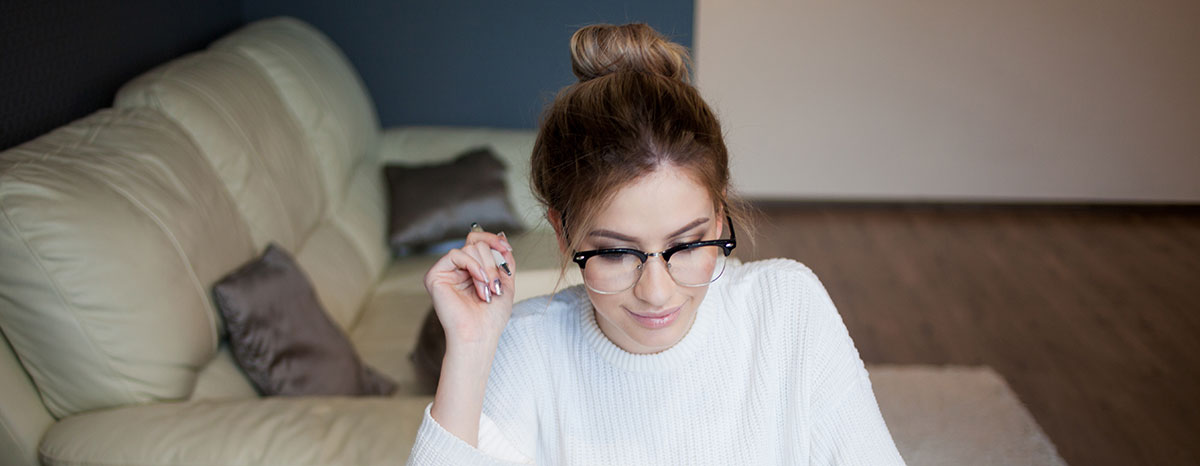NEWSLETTER
CORONAVIRUS: INFORMATION FOR THE MSCA COMMUNITY
The Marie Skłodowska-Curie Actions are providing up-to-date, responsive information related to the COVID-19 crisis to MSCA fellows and project managers.

The COVID-19 outbreak has caused major disruptions for many researchers, projects and organisations, including those working with EU funding. The Marie Skłodowska- Curie Actions (MSCA) are therefore seeking to provide responsive, upto-date information for all MSCA researchers and projects.
Researchers, project managers and interested stakeholders can access information on relevant news and initiatives, call updates or frequently asked questions, and also learn about inspiring stories on how MSCA researchers and projects are working to tackle the spread of coronavirus and its wider effects on our society.
INFORMATION FOR MSCA FELLOWS AND PROJECT MANAGERS
- Research/Innovation Corona Platform FAQs
The European Research Area (ERA) operates a central Corona Platform for all information on how the current crisis may effect research and innovation projects.Some of the most frequently asked questions (FAQs) by MSCA project coordinators and fellows can be found on the platform’s FAQ page.
New MSCA FAQs have been added on 17 April 2020, additional FAQs might be published in the future.
- REA News
The Research Executive Agency (REA)’s news on the coronavirus can offer advice to MSCA project coordinators and fellows whose projects and activities may be affected by the coronavirus outbreak.
In order to minimise disruptions caused by COVID-19 on business continuity, The REA has also published a news item detailing the latest decisions taken at the European Commission level that have an impact on its research management activities. The news item also contains relevant links and information on calls for proposals, evaluations and experts, grant management and links to FAQs for project managers and fellows.
- Call extensions
In light of the COVID-19 outbreak and the difficulties applicants may have experienced in submitting their proposals, the Commission has decided to Extend the RISE 2020 call deadline by two weeks, until 12 May 2020, 17:00 Brussels time.
RELATED INFORMATION
- Common European Response
The European Commission (EC) is coordinating a Common European Response to the COVID-19 outbreak. For more information about the EC’s work to mitigate its effects across Europe, please visit the EC’s Coordinated Response page.
- Coronavirus: online learning resources
The Education and Training website of the European Commission (EC) has prepared a selection of online resources and tools for learners, teachers and educators during the outbreak of COVID-19.
- Commission-funded coronavirus and pandemic research
The European Commission has been at the forefront of supporting research and coordination of European and global efforts to tackle the spread of coronavirus, including preparedness for pandemics and other outbreaks. Some of this amazing research can be referenced via the coronavirus research and innovation pages.
Information on other research and innovation actions in can also be found on the research areas support page.
- EUvsVirus Pan-European Hackathon
The European Commission, in close collaboration with EU member states, will host the Pan-European hackathon #EUvsVirus to work in developing innovative solutions for coronavirus- related challenges. The event will take place from 24-26 April 2020.
Applications can be sent through the hackathon’s website.
THE MSCA ON SOCIAL MEDIA
The MSCA social media are continuously updated with relevant information for MSCA project coordinators and fellows, as well as testimonials of top-notch MSCA fellows and projects working to find solutions to challenges posed by coronaviruses and other infectious diseases.
The MSCA can found on social media at:
COPING WITH THE CORONAVIRUS CHAOS IN SCIENTIFIC RESEARCH
Research meetings are being postponed and/or cancelled because of COVID-19, slowing down or even delaying the work of scientists. An established professor, a postdoctoral researcher and a doctoral student discuss how they’re dealing with this new normal.
“So far, although all physical meetings and classes have been cancelled in Spain because of COVID-19, we can carry on with online classes, tutorials and small meetings,” says Asun López-Varela, Associate Professor and Deputy Head of the Department of English Studies at Complutense University of Madrid. She’s also an external evaluator for the European Commission in the social sciences and humanities domain. “It’s a huge amount of work, but I’m recording all my classes on video and putting them online. Small meetings are still taking place. Large conferences or meetings with a greater number of people are very difficult to hold online and they are all being postponed.”
López-Varela sees logistical issues arising in the near future. “As Deputy Head, I’ll soon need to make decisions about programming classes for next year, renewing staff contracts and so on. For some decisions, we need approval of all department members and it’s going to be difficult to hold an online meeting. We’re postponing everything since our Faculty’s administrative department is also delayed with programming. Before long, we’ll need to make decisions and might have to hold some kind of online meeting with all 80 staff members. I think it can be done.”
“In Spain the situation is going to continue for some time, so it’s very likely that we won’t have faceto-face classes this term,” adds López-Varela. “We postponed a large conference and still need to decide when to hold it. Agreements have been made for the publication of papers, and we’re continuing with these compromises as scheduled. For example, prospective attendees are sending their papers in April for publication in July even if the conference takes place later.”
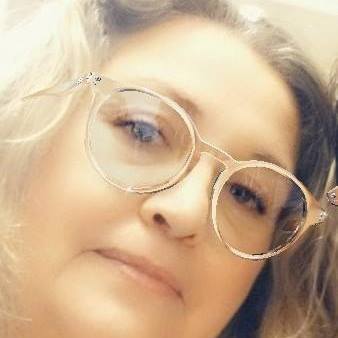
For Mingjie Duan, a second-year PhD student in epidemiology at the University of Groningen, all unit meetings, weekly meetings with supervisors, other research meetings and small seminar meetings have been cancelled. “In the Netherlands, coronavirus measures have just been put in place, so we’re still trying to see how we can manage with applications like Skype. Our small research group has decided to set up a shared Google drive file so that we can keep each other updated on our schedules.”
Monica Lopez-Vicente, a postdoc at the Erasmus University Medical Center in Rotterdam who conducts research in the development of brain connectivity with respect to mental health in the general paediatric population, hasn’t had any relevant meetings cancelled yet. “I’m planning to attend a meeting in September to present my research results. If this is cancelled, it will have an effect on my connections. However, virtual meetings are also very useful – and good for the environment!”
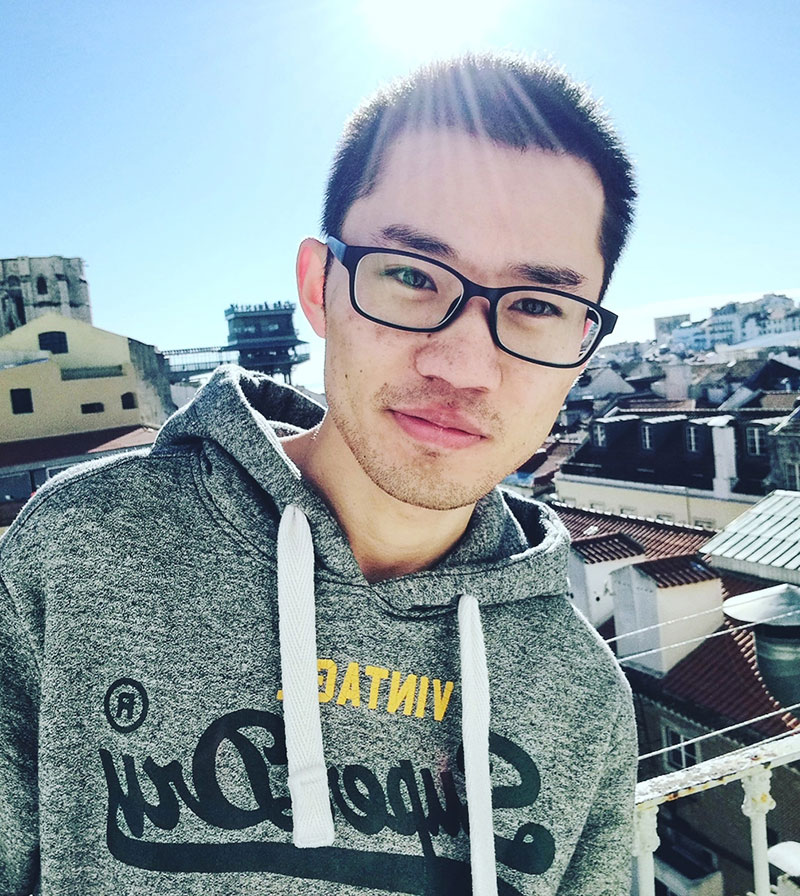
EARLY-STAGE RESEARCHERS HARDEST HIT
As an established scholar with a permanent academic position, López-Varela explains that the cancellations and postponements aren’t drastically affecting her professional career, in contrast with young researchers. “It can be catastrophic for people in the early stages of their career development, particularly those working in the labs. The Commission should start working on ways to safeguard all research actions being delayed because of COVID-19. In particular, the MSCA-IF panels should have a backup plan to help all researchers in difficult situations and extend their mobility research periods whenever possible.” She continues: “As evaluators, we are always asked to check the contingency plans in funding applications. It’s one of the key points in the implementation criterion of applications. This is just as important as emphasising the impact of research and other aspects.”
According to Duan, research meetings held on a regular basis will continue, just not in the form of physical gatherings. What’s more key is continuous communication. “It’s important for us to share progress and ideas at least every week.”
PLAN B
López-Varela has always had backup plans in place. “I use for instance multimodal alternatives in teaching and education innovation. I have been building up a contingency plan for years, putting a lot of materials online for my students and using online applications for my classes.” All her research team’s work can be found online. “No online tool can replace physical contact. Virtual environments can never replace the emotional input we receive from face-to-face communication that impacts motivation in the classroom or networking in congresses and other events. I think this is a particularly important consideration when planning our futures in education and research.”
For now, Duan is using a digital workspace platform to conduct his research on data analysis. He’s unsure about what the future holds. “I’m always using Citrix to get access to my database, so it makes no difference actually where I work from. Meetings seem to be going fine, but I’m not sure if we’ll lose opportunities in the future, like presenting at an international conference.”
“I plan to take advantage of my current contacts and focus on performing analyses and writing papers,” says Lopez-Vicente about her future plans.
More than 30 leading publishers from countries around the world have agreed to make coronavirus (COVID-19) content freely accessible.
A PETITION ASKS FOR EXTRAORDINARY MEASURES TO MITIGATE THE IMPACT OF COVID-19 PANDEMIC IN MSCA PROJECTS
Alejandro Manzano Marín is one of the main fellows behind a petition asking for extraordinary measures to mitigate the impact of COVID-19 pandemic in MSCA projects. Read his interview.
Alejandro, in his own words
Born in the UK (of Mexican nationality though), is currently an MSCA Postdoctoral fellow at the Division of Microbial Ecology, University of Vienna. He obtained a PhD at the University of Valencia, Spain (MC ITN fellow FP7 SYMBIOMICS) and recently finished his first Postdoc at INRAE, France (MC COFUND fellow FP7 AgreenSkills+).

How has COVID-19 pandemic impacted MSCA fellows?
The lockdown measures implemented have led to a restructuring of personal lives as well as projects, creating very challenging situations for some fellows. Many projects in fact, heavily depend on laboratory, field, and/or archival work, which has now been suspended. Central principles of the MSCA, such as training, mobility, and networking, have similarly been affected. Specifically, I’ve communicated with fellows that are currently stuck outside their country of residence due to both recommendations and travel restrictions. In addition, fellows’ situations are further impacted for those with children, some solo-parenting, or other family obligations. While posing a significant risk to the project development and the career opportunity an MSCA fellowship represents, the current situation is also affecting the mental health of many MSCA fellows in ITN, COFUND, and IF schemes.
What was the response of the MSCA/REA to fellows?
The MSCA first released a public statement on the 13th of March announcing “Consequences for Marie Skłodowska-Curie Actions”. An email to MSCA fellows followed stating that “Projects could also be exceptionally extended, if necessary.” These communications led many to understand that (paid) extension would be a reality. By then, other European funding bodies announced extending the paid periods of their grantees. For example, the Portuguese FCT, the EMBO, and the German DFG have all openly announced extensions for their PhD or Postdoc fellows of one, two, and three months, respectively (FCT and EMBO with a provision to revise in case the situation changes).
Much to our surprise, our project officers confirmed non-costed extensions, leading to an unpaid work period. This has been reiterated by Commissioner Mariya Gabriel stating that “[...] the maximum grant amount cannot be increased”. In summary, the communication with the MSCA/REA has so far been unclear, insufficient, and disappointing.
Which factors were not considered in the MSCA/REA response that led to the current petition?
While we recognise that the MSCA/ REA has made the correct decision not to suspend the fellows’ projects (and thus their salaries), the options being offered are, to say the least: inadequate, uninformed, and/or unrealistic solutions to a serious problem:
1. Remote working. Many projects are currently in a phase that requires lab work (my particular case), field work, or archival research. The latter is the case of fellow Francesca Tancini, whose project is heavily dependent on archival research of unpublished and uncatalogued sources. She is now in her sixth week of solo-parenting home-schooling in Italy, making any remote working impossible. Also, depending on the project stage, there might simply not be tasks that can be tackled through remote working.
2. Temporary suspension of the MSCA. This has some serious implications. Firstly, a temporary suspension equates to a temporary salary suspension. This is not an option for fellows that depend on their salaries to pay rent, provide for their families, and meet other financial obligations. For example, fellow Francesca Lanz moved to the UK with her family and her income is the only one sustaining a family of four. Besides, suspensions lead sometimes to a mutual (temporary) termination of the work contract, translating into loss of social benefits and/or residency permits, often tied to having a valid job contract as a researcher.
3. Switching to the minimum work pattern of 50% (with 50% salary). For financial reasons, this is simply not an option for a number of fellows. Additionally, these types of contracts are not universally embraced by the different universities/institutions/ organisations many of us are directly employed by. In some cases, we are often considered separate to non-MSCA researchers, which blocks us further from benefits they decide to support their workers with.
4. Using “Research, training and networking unit” costs to extend contracts. This is simply impossible for some projects whose budgets are already tight (resulting in incomplete projects) or that are beyond the point of having such a surplus to re-allocate.
Do you have a final message to the MSCA/REA and fellows?
While some EU countries have announced measures to mitigate the job loss related to the COVID-19 pandemic, the MSCA/REA must be aware that access to such social benefits are not often reachable by MSCA fellows due to the mobility pre-requisite (having only worked for a brief period in our host country), which often renders us in some respects “stateless”.
I have launched an online petition on the 23rd of March, which has now raised over 528 signatures. We are asking the appropriate authorities to take responsibility for their fellows’ well-being and careers and support them following the leading examples of the FCT, EMBO, and DFG.
INTERESTED? Join the campaign and sign the petition!

A RAY OF HOPE AS RESEARCH SLOWS DOWN
COVID-19 is forcing labs in universities and research institutes around the world to shut down. Dr Radenka Krsmanović Whiffen provides much food for thought on this widespread and lengthy closure.
How will an extensive and prolonged shutdown have tremendous implications for the rate of scientific discovery?
Research is often about day-by-day incremental gains. As such, there’s an opportunity cost that comes from any kind of extended shutdown. Due to the COVID-19 pandemic, a whole range of researchers might not be able to complete their experiments, test their theories, or see the results of research that requires evolution over the medium to long term. This will obviously slow the pace of scientific discovery. However, the negative impact can be reduced in a situation where research has a global dimension. That’s assuming we are talking about projects involving international cooperation and collaboration that share data and available resources. Overall, I do think opportunities will be missed and research slowed down if we are looking at widespread restrictions for more than a few months.
Universities are the engines of research (basic and applied). It’s not as essential as maintaining core health and human services, but just how important is scientific research really?
Research is not core in the sense that hospitals, supermarkets and schools are, but it does have an enormous impact on everyday lives. Research drives progress, be that in health, as we are seeing with the amount of research and investment into COVID-19 in just a few weeks, or in other areas like green energy, AI or behavioural science. In a crisis, people look to experts for solutions, expecting science to have all the answers immediately. Sometimes, I think the general public doesn’t understand the fact that the process of research is both complex and time-consuming; there are no short cuts. What we do have are numerous examples showing that knowledge is essential in shaping and driving our lives, in both ordinary and extraordinary times. Indeed, government responses to the COVID-19 outbreak are, generally speaking, being driven by research and scientific evidence, which can only be a good thing. It’s vital that we hear from experts about their research and the evidence they can provide if we want our leaders to make informed decisions.
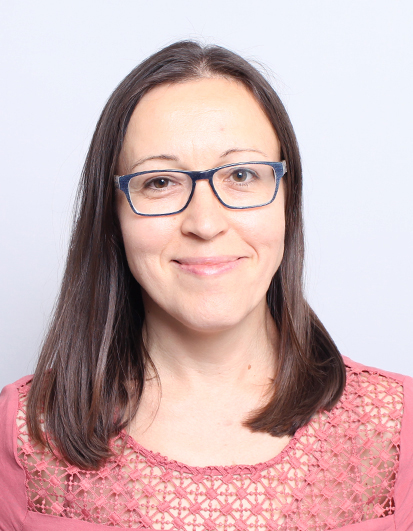
What do you believe is the silver lining in this uncertain future? What are the lessons to take forward?
Firstly, the crisis has highlighted the importance of research as a means of providing evidence for policy. Governments everywhere are following scientific advice in their COVID-19 policy responses. Research doesn’t make policy, but it does have a role in helping to shape policy in any area by giving politicians the evidence they need. Hopefully, this will mean that going forward research is seen as a key element of applied public policy.
The other major impact of the crisis is to show the vital importance of open science and freedom of information. Collaboration between research groups is key here, rather than secrecy and competition. That should help embed open science and responsible research and innovation as the standard way of working across disciplines.
I think the biggest lesson for researchers is that science and its application really is important, and that knowledge is power. People trust researchers to give them the facts and offer informed opinions. By providing evidence to support informed decision-making, research plays a key public role in offering a factual basis as an antidote to scare-stories and fake news. That’s a role I believe all researchers should embrace.
What messages do you have for MCAA members?
To start with, I hope all our members stay safe by following local advice wherever they are and ensuring they help minimise the effects of the crisis. We must all act responsibly to protect ourselves and others.
My message to members is simple. Please be optimistic. I know that seems difficult when you are faced with the potential for extended disruption to your lives and livelihoods, not to mention your research, and when things are so uncertain for all of us. But optimism is one of the most powerful weapons we have. This situation is very frightening, but it won’t last forever, and once it’s over we will all have a new perspective. We must all stay safe, support each other and prepare for the world that is coming after COVID-19, where research and data are going to be more important than ever before. None of us can predict what the ongoing impact of COVID-19 will be, but we can, perhaps, start to imagine what we would like the future of research to look like.
I hope the lasting legacy of the coronavirus outbreak for research will be a more open, more dynamic and more globally collaborative environment, with an increased awareness of the fundamental role that research, at all levels, plays in helping to shape our responses to the global challenges we face. We can all play a part in making that a reality, and I would encourage every member to think carefully about how best they can help shape the post-COVID-19 research environment to support this vision.
Radenka Krsmanović Whiffen is an MSCA Individual Fellow in physics at the ENEA Casaccia Research Centre in Rome. Her project deals with pyroelectric materials for waste heat energy harvesting. She’s also the founding Chair of the Western Balkans Chapter.
WORKING AND NETWORKING IN TIMES OF COVID-19
The spreading of the COVID-19 pandemic has completely changed the way of working for a large part of the world’s workforce. From the office to their home, researchers and scientists have had to reinvent their workflow and routine. Valerie Bentivegna and Valentina Ferro shared with us what has changed for them, and what could be learned from this unusual situation.
Valerie Bentivegna, in her own words
I am a former Early Stage Researcher (ESR) in the PHOQUS Innovative Training Network (ITN). I am currently working for a biotechnology company in Seattle as a researcher/science writer and also organise science comedy shows and workshops in the area. I'm the chair of the communication workgroup.
Valentina Ferro, in her own words
I am Valentina Ferro, a postdoctoral scholar at UC Berkeley. Specifically, I work as instrumentation scientist for the Advanced Bioimaging Center with Prof. Gokul Upadhayaula and Prof. Erik Betzig, where I build and utilise a novel generation of microscopes called MOSAIC (Multimodal Optical Scope with Adaptive Imaging Corrections).
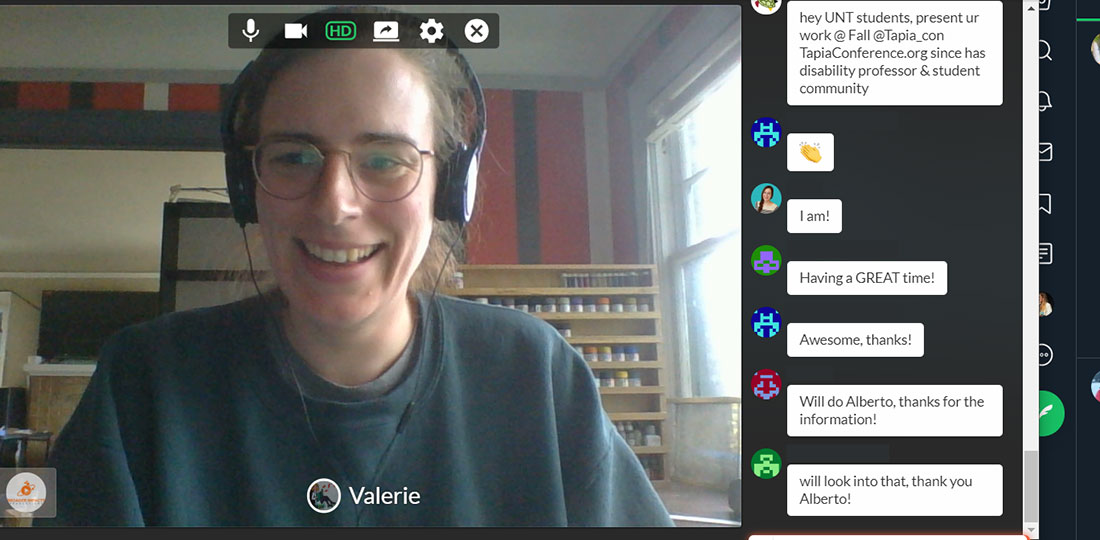
FROM THE OFFICE TO HOME
Our two interviewees are currently living in the United States. Their working habits have already been impacted by the COVID-19 pandemic. “I'm currently working from home on writing projects and research & development that can be done remotely. I'm relying more on our lab technician to maintain cell lines andset up and conduct experiments. Currently, I'm able to access remotely the microscope computer, so as long as everything is set up, I can run the imaging experiments and perform analysis from my home office," explains Valerie.
Specific rules have been set in the State where Valentina lives: “I currently live in California, one of the US states with the highest incidence of Covid-19 cases. Alameda County has ordered a shelter-in-place since 16 March, forcing the University of Berkeley to issue a mandate to all research groups to slowly reduce the research work until reaching a complete halt. Except that for critical research (evaluated on a case-bycase basis by the University Departments) and for animal care. The university halls are now empty.” She now has to focus on other tasks. “I typically spend my day hands-on with instrumentations, standing and moving around the microscope and carrying imaging sections whenever we have biological samples. Now, I have to find meaningful and productive tasks I can conduct from home. Thanks to teamwork established by our PI, we can immediately identify useful activities to carry out, like writing documentation for the microscopes or working on data analysis,” explains Valentina.
CHALLENGES
Adapting to these changes within the working environment at such short notice can be challenging. Valerie misses the direct contact with colleagues. "Jumping on a phone call is a higher barrier,” she deplores.
For Valentina, working remotely without a proper day-to-day routine is not recommended. She shares with us some advice:
- Get dressed up: avoid the temptation to stay in pyjamas the entire day. Take a shower, put on make-up if you normally do, get dressed. Maintaining your standard routine will help you to shift your mindset from "relaxing at home" to "be productive at work.
- Have a schedule: work with your team to maintain a healthy schedule. Decide a time to start and stop working, and try to create boundaries between working and just staying at home, either physical boundaries (only working in a specific room in your house) or symbolic ones (switch to a different account on your laptop between work time and leisure time).
- Move and rest: stretch regularly every hour, stand up, take a short walk around the house, and rest your eyes. This is particularly important if your workstation at home is not ergonomic as it would be at your workplace. If your health conditions allow it, do some other type of regular exercise that can be done at home, like calisthenics and yoga.
OPPORTUNITIES
As the Chair of the Communication Working Group since 2018, Valerie already had the opportunity to attend numerous MCAA virtual meetings. She considers however ‘digital networking’ as an opportunity for researchers. “I do think it's interesting to see many conferences (and comedy open mics for that matter) switch to virtual and online,” she says.
This is what Valentina echoes, as each challenge comes with the opportunity for a creative solution. “We live in the best possible time to face a pandemic like COVID-19. We have all the tools we need to have online meetings, symposium and conferences. Many tech companies are playing their part in this overall effort against the virus, by providing their videoconferencing software for free during this difficult time. It is up to us to test these tools and to gauge the type of engagement and network we can generate during virtual events,” she observes.
DIGITAL SOLUTIONS
To Valentina, maintaining contact with team workers is key in these times of quarantine. “If you are participating in a conference, do not shy away from the message board or chat room that might be put in place by the organiser,” she recommends. Organising an online game with the laboratory team can also be a fun digital alternative.
Twitter has also a role to play according to Valerie. “I'm really enjoying the science community on twitter and as long as I restrict my times to go check, it's been a really cool way to network,” she explains.
LIFE AFTER THE COVID-19
Both our interviewees agree that the COVID-19 pandemic will lead to numerous lessons learned. According to Valentina, this is an opportunity to test and to learn new media. It is also crucial to reflect on certain aspects “How can we cultivate lasting forms of collaboration and communication
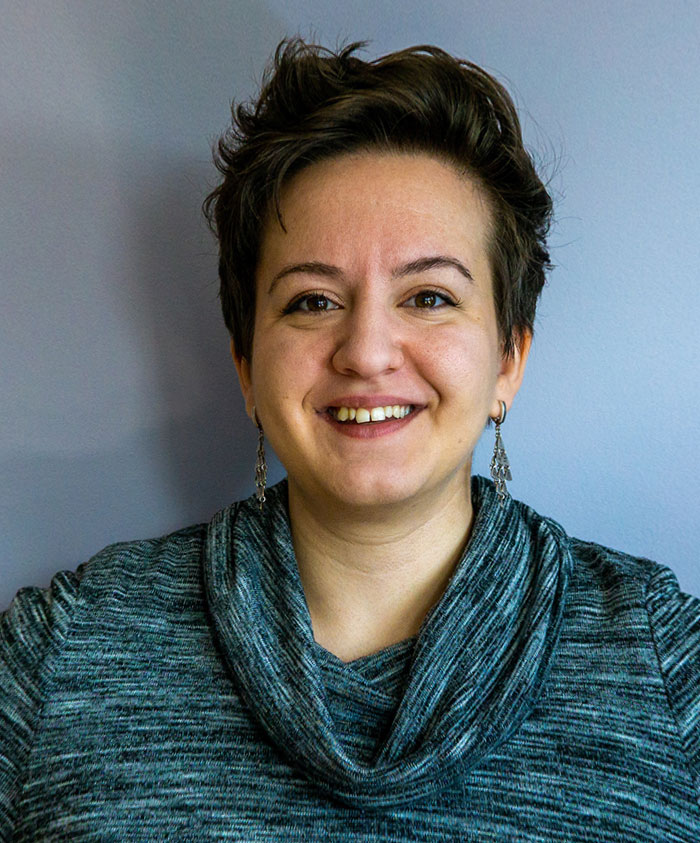
between international research groups to reduce fragmented knowledge and increase universal research that benefit humanity as a whole without being bound by political and financial constraints,” she muses.
To Valerie, the COVID-19 will lead to opportunities to meet people one would never had met in normal times. She concludes with humour: “Maintaining those new relationships after COVID-19 will allow us to say: So how do you two know each other? ‒ We met online during COVID-19!”
